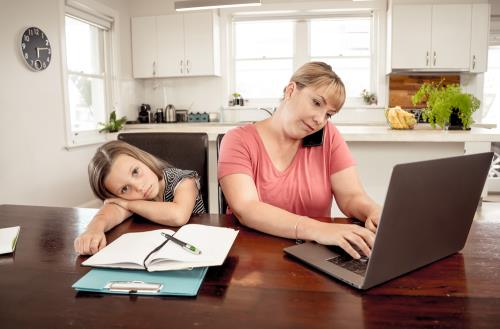15 Mar 2021

By Mark Richards,
We are all human, and as the pandemic looks set to stretch into a second year, we have yet to count the full cost – not just economically, but socially and emotionally too. In recent weeks, more and more people have started, rightly, to voice their concerns about the impact that the pandemic is having on the social, emotional and mental well-being of children and young people.
Much has been made of how children have been affected because of their time away from school and their peers. When schools fully opened in September, many teachers noted how genuinely pleased many pupils were to be back within the fold of their school community and back to the routine that school brings.
Of course, there are many challenges faced by children and young people because of the pandemic. We shouldn’t underestimate just how affecting changes to routines can be. Having to distance from family and friends, and the fact that a typical school day – very much a social experience – has been replaced by the relatively solitary experience that a daily diet on online learning provides.
What impact has coronavirus had on mental health?
Remote learning has its merits, but continuity of learning has really been disrupted over the last year. To make matters worse, many children have had to deal with problems with technology access, connectivity, or the fact that the home is not an appropriate and suitable environment for them. Many students will also have experienced breaks to the continuity of their health care. There has been reduced access to certain health services as a result of the pandemic.
Many children – probably in the millions – will have experienced the financial impact that coronavirus has had on families. The Marcus Rashford campaign about free school meals highlighted the wide-scale problem of food insecurity across the country. Many children will also be living under the cloud of housing insecurity too.
Last but not least, children and young people might have missed on significant life events, from missing their last days at primary school to not enjoying their Year 11 Leavers’ Prom - to missing family celebrations and gatherings. Young people have missed out on so much.
A ticking time bomb of mental health issues
When all is said and done, what all this amounts to is potentially a ticking time bomb of mental health issues for children and young people. Even before the onset of the pandemic, concerns were rife about children’s mental health. There was a general consensus that growing up today is harder and more complicated than it ever was before – and now the pandemic has heaped even more pressures and problems on the shoulders of those so young.
In the hectic confusion of a 24/7 online world, young people need more support than ever to help them navigate through. It’s estimated that three children in every classroom suffer from a diagnosable mental health problem. The situation is only going to get worse because of the impact of the pandemic.
Schools need to be more than centres of learning. They can and do provide so much support to young people. However, if we are really to deal with the impending children’s mental health crisis, we really need to realign our priorities as a nation.
Academic learning and achievement must be rebalanced with emotional wellbeing. The truth is that well-being after school will have a greater impact on a person’s life outcomes than exam grades alone.
RELATED POSTS
1- Mental Health in Children and the School's Responsibility
2- Mental health: is it time we addressed this topic through formal education?
3- SATs stress: mental health first aid is not the answer
4- Mental Health – Society’s Problem Left for Schools to Sort
5- Financial protection for teachers during Covid-19 pandemic
We encourage our readers to share their knowledge.
Do you have an idea, view, opinion or suggestion which would interest others in the education sector?
Are you a writer? Would you like to write and have your article published on The Educator?
If you are connected with the education sector or would like to express your views, opinion on something required policymakers’ attention, please feel free to send your contents to editorial@theeducator.com